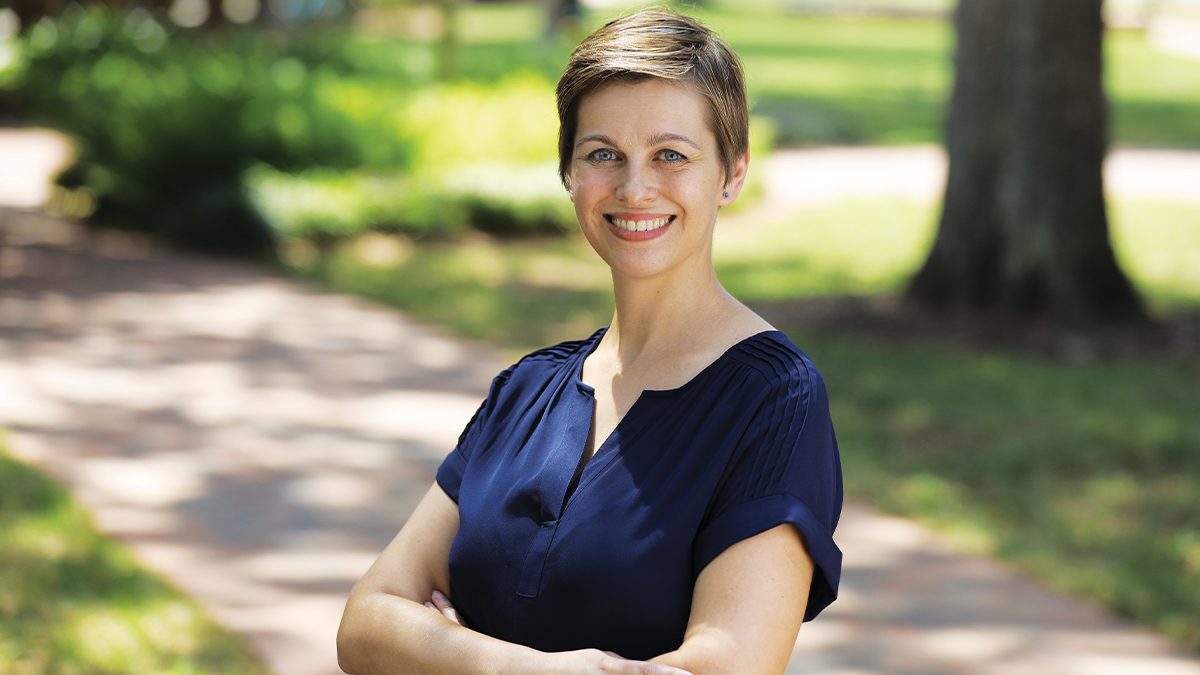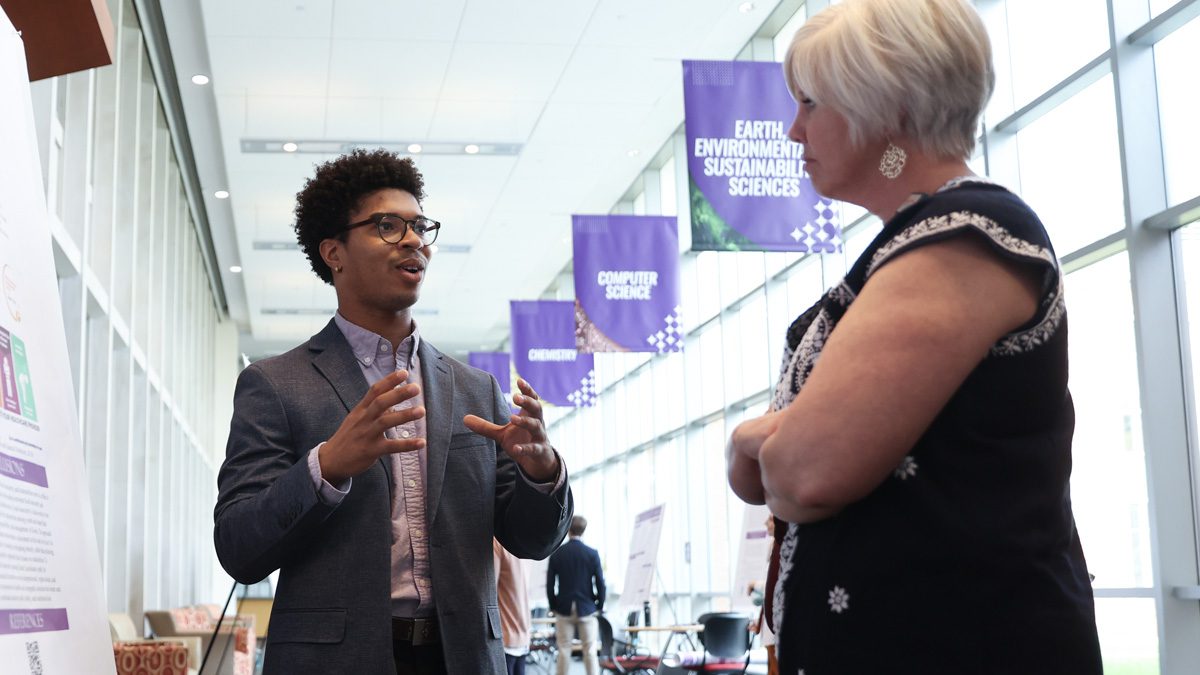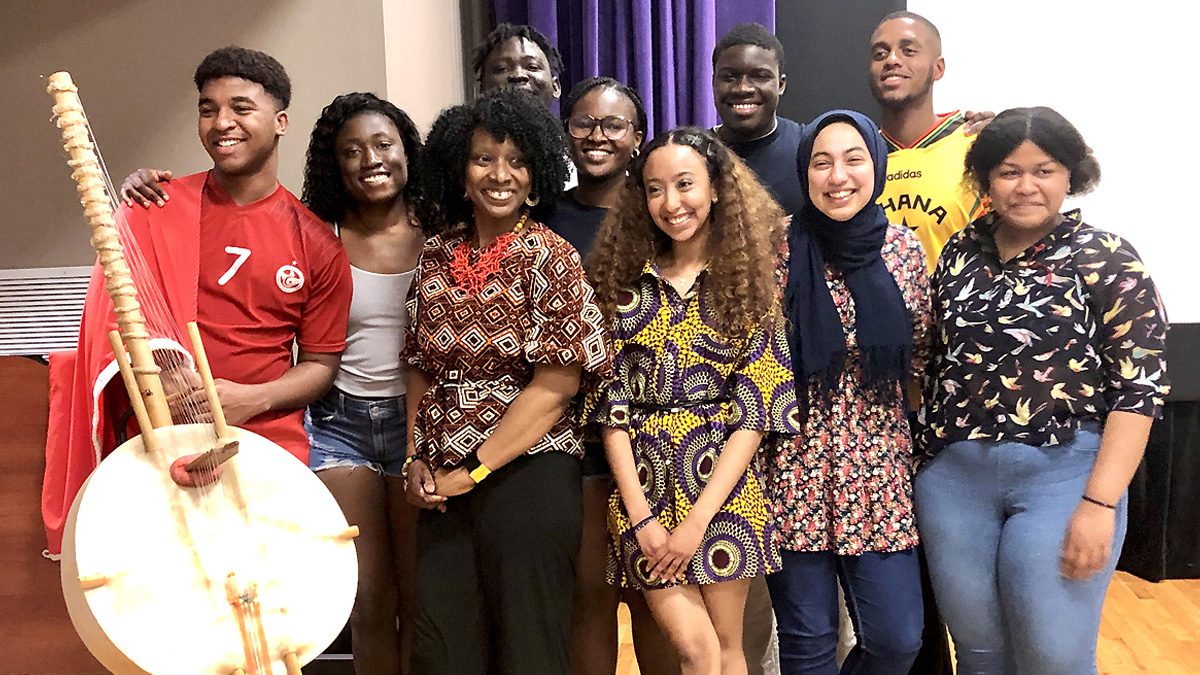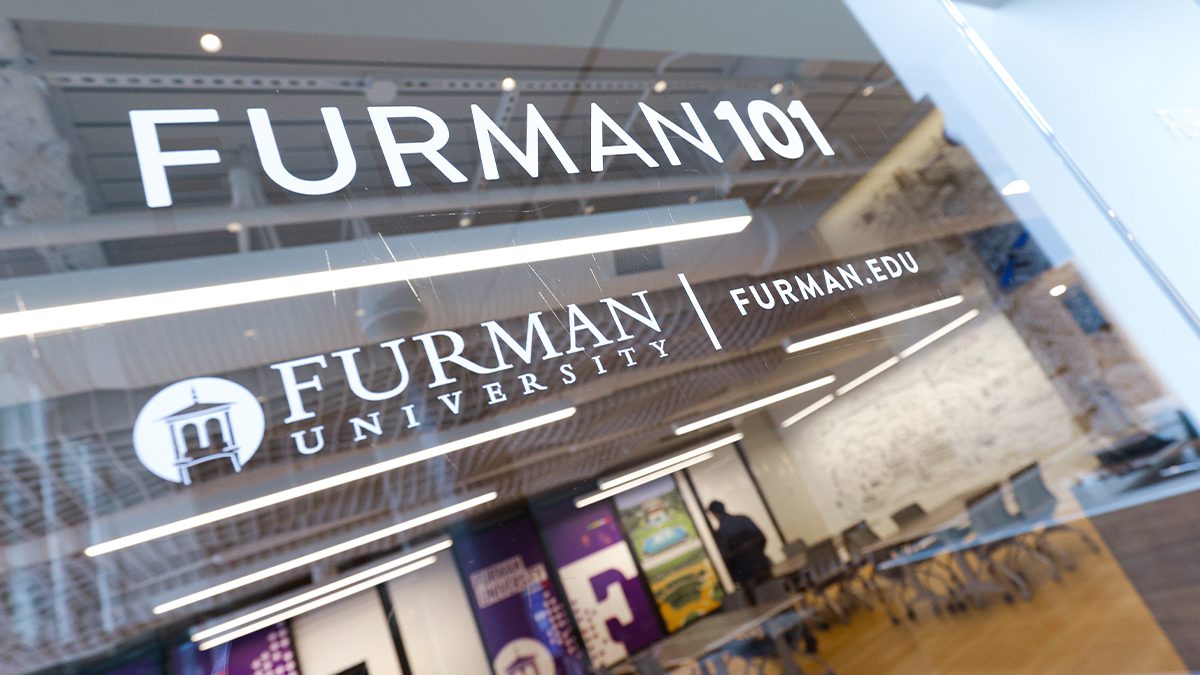
Around The Lake
‘We’ve Created something Unique’
Every first- and second-year Furman student participates in the Pathways Program, a new two-year course focused on mentoring, reflection and belonging.
By Clinton Colmenares
When Libby Hamilton ’24, a vocal performance and music theory major, completed a strengths assessment, she made a meaningful discovery. One of her strengths is empathy. It was part of the university’s Pathways program, a two-year program central to The Furman Advantage, the university’s signature educational framework.
“We had a presentation about what the strengths meant and how to work in a group,” says Hamilton. “It will 100% help with my career.”
Pathways was piloted for several years with about a third of Furman’s students. This past March, Furman faculty voted to extend the program to all students as a graduation requirement starting this fall.
Pathways is a one-credit class each semester for first- and second-year students that builds a foundation of self-awareness, helping students learn who they are, what they value and where their interests lie. Sophomores also build a résumé, have an informational interview with an alumnus, and learn other career skills and how to tell their story.
Pathways is led by faculty advisors and, for first-year students, upperclass peer mentors who help students think about what they want to do with their lives and how to integrate their academics, their engaged learning experiences – such as study away, research and internships – and their career goals.
“The student reflections collected during the pilot phase tell us we are giving students a foundation that helps them connect to resources, create community and make the most of their Furman experience,” says Michelle Horhota, associate dean for mentoring and advising and a professor of psychology who oversees the Pathways program.
In the pilot, students who participated in Pathways reported higher satisfaction scores for advising than students not in Pathways. The early data also suggest that Pathways benefits students from low-income families, first-generation college students and students of color, in terms of
- increased retention,
- increased participation in engaged learning experiences, and
- earlier and more frequent appointments with career counseling.
For juniors and seniors, their pathways continue at the department level, where information builds on what students learn in years one and two, tailored to their specific majors. Students reflect on what they’re learning through their major classes and outside experiences, and how it prepares them for a job or graduate or professional school.
Students learn the culture within their chosen discipline, the expectations in different fields and what the workplace environment may be like. Each academic department provides these experiences differently. Multiple departments host a series of events to help their majors reflect on their academic pathways, including graduate school nights, alumni panels and sessions about engaged learning opportunities or career competency development.
Other departments hold mini-retreats for students at different stages of their Furman career or bring in alumni to provide workshops to learn specific techniques and share their professional journeys.
“With Pathways,” says Furman President Elizabeth Davis, “we’ve created something unique in higher education: a program for all students that provides mentorship and reflection, so students graduate ready for lives of purpose and accelerated careers.”
Photo: Jeremy Fleming ’08

At this year’s event, students invited the campus community into their research, service learning, creative works and other engaged learning experiences.

Students from Africa invited their classmates to see their respective home countries, in some cases for the first time.
